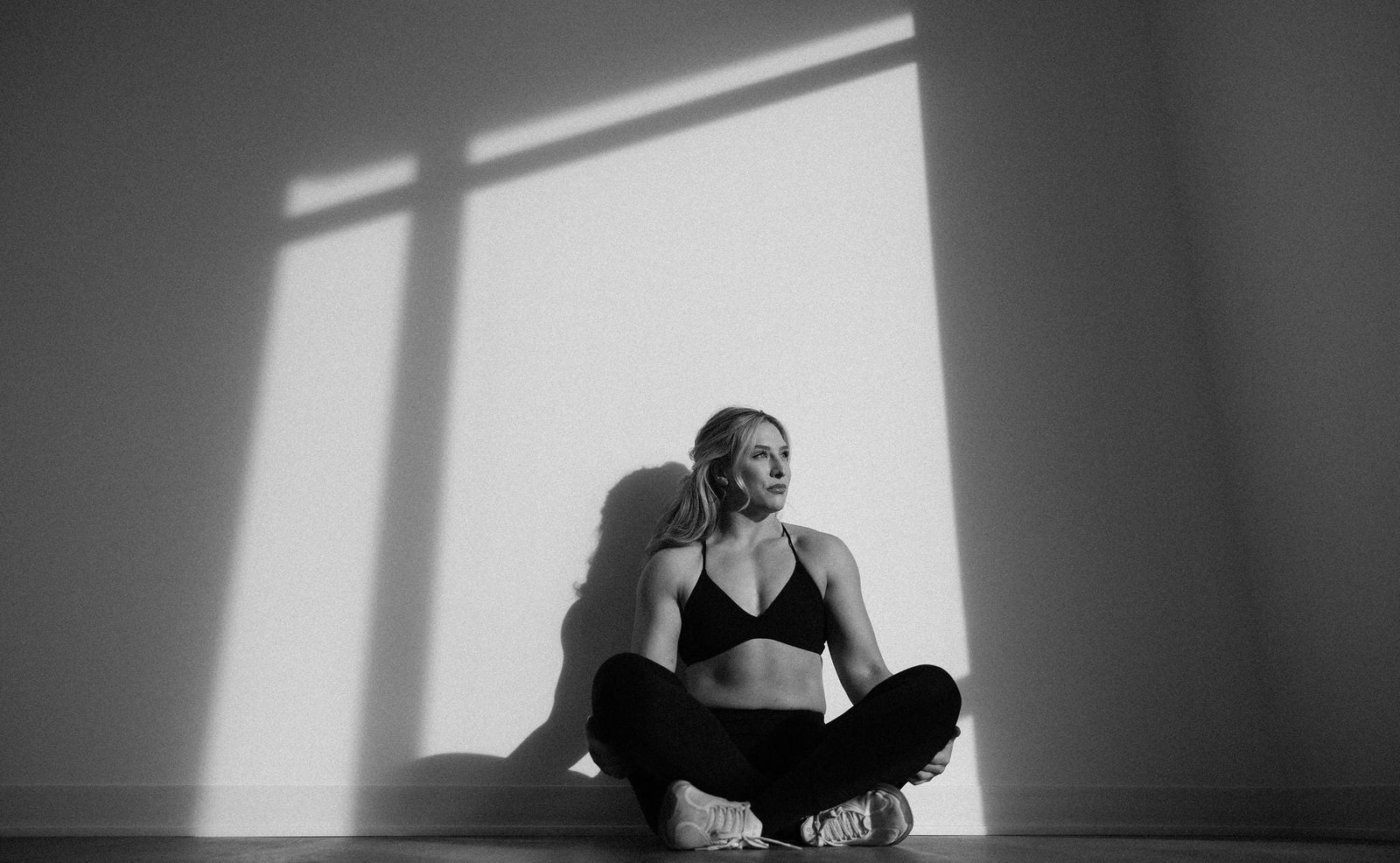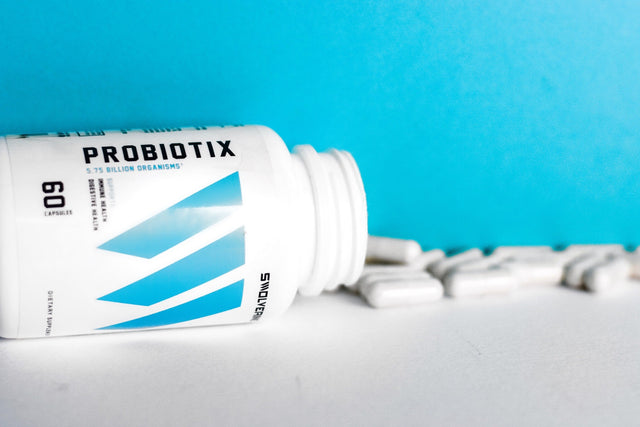In a world where women's health discussions often overlook the role of testosterone, it’s time to shine a light on this vital hormone. While typically associated with men, testosterone plays an essential role in women's health and well-being too. From enhancing energy levels and improving mood to promoting muscle strength and bone density, testosterone is a powerhouse that women need for overall vitality. Yet, many remain unaware of its importance, leading to misconceptions and inadequate support for those struggling with hormonal imbalances.
This article aims to unlock the mysteries surrounding testosterone in women, exploring its functions, benefits, and how a healthy balance can transform lives. Join us as we delve into the compelling reasons why women should prioritize testosterone and embrace a healthier, more vibrant existence.
Whether you're curious about symptoms of low testosterone or seeking ways to optimize your health, this comprehensive guide will empower you with the knowledge to thrive.
Understanding Testosterone in Women: What You Need to Know
Testosterone is often misunderstood as a “male-only” hormone, but it plays a critical role in women’s health, too. While women produce significantly less testosterone than men, this powerful androgen hormone—synthesized in the ovaries and adrenal glands—is vital for numerous physiological functions including libido, muscle development, energy, bone health, and mood regulation.
According to the Endocrine Society, testosterone levels in women naturally decline with age, especially during and after menopause, but this doesn’t make the hormone any less essential for optimal function (Rosner, 2006 – The Journal of Clinical Endocrinology & Metabolism).
The Role of Testosterone in Women’s Health
1. Sexual Health and Libido
Testosterone helps regulate sexual desire, arousal, and satisfaction. Women with low testosterone often report:
-
Decreased libido
-
Difficulty achieving arousal
-
Less pleasure from intimacy
A study published in Menopause found that transdermal testosterone therapy significantly improved sexual desire and arousal in postmenopausal women with low libido (Davis et al., 2008).
2. Muscle Mass and Physical Performance
Testosterone is essential for preserving lean muscle mass, strength, and physical performance in women. Lower levels are associated with:
-
Muscle loss
-
Increased body fat
-
Slower recovery after exercise
Research in The Journal of Clinical Endocrinology & Metabolism demonstrated that testosterone administration increased lean mass and physical performance in women with androgen deficiency (Huang & Basaria, 2017).
3. Bone Density and Skeletal Strength
Alongside estrogen, testosterone helps maintain bone mineral density. As both hormones decline with age, the risk of osteoporosis and fractures increases.
A randomized controlled trial showed that testosterone supplementation preserved bone density in women with osteoporosis risk (Bachmann et al., 2005 – Menopause).
Common Myths About Testosterone and Women
Myth 1: Testosterone is Only a Male Hormone
Fact: Women need testosterone for physical and emotional health. It contributes to metabolism, libido, mood, and muscle function.
Myth 2: Boosting Testosterone Makes Women Masculine
Fact: While excess levels of testosterone can cause masculinizing effects, medically supervised treatment aims to restore balance, not create excess. Proper dosing prevents virilization.
Myth 3: Testosterone Therapy is Unsafe for Women
Fact: When monitored by a healthcare professional, testosterone therapy is safe and effective in treating androgen deficiency symptoms.
Clinical guidelines by the International Menopause Society support testosterone use for low libido in women when properly prescribed (Davis et al., 2019 – The Lancet Diabetes & Endocrinology).
Symptoms of Low Testosterone in Women
Recognizing the signs of low testosterone is essential for proper diagnosis and treatment. Common symptoms include:
-
Low libido or diminished sexual satisfaction
-
Persistent fatigue or low energy
-
Mood swings, irritability, or depression
-
Decreased muscle mass and strength
-
Increased abdominal fat
-
Loss of bone density
A review in Clinical Interventions in Aging emphasized the link between testosterone deficiency and decreased quality of life in aging women (Shifren & Schiff, 2010).
The Impact of Aging on Testosterone Levels
Testosterone levels peak in women during their 20s and gradually decline with age—typically dropping by 50% or more by menopause.
Effects of Decline:
-
Reduced bone mineral density
-
Increased visceral fat
-
Weakened muscle integrity
-
Lower motivation and mood stability
Combined estrogen and testosterone declines during menopause have been linked to greater risk of osteoporosis, cardiovascular disease, and metabolic dysfunction (Lobo, 2001 – The New England Journal of Medicine).
Supporting Healthy Testosterone Levels in Women
To maintain optimal testosterone levels, women can benefit from:
-
Resistance training and weight lifting
-
Adequate dietary protein and healthy fats
-
Supplementation with zinc, magnesium, and vitamin D
-
Stress management, since cortisol suppresses testosterone
-
Medical evaluation for testosterone replacement therapy if clinically indicated
Lifestyle interventions combined with medical therapy provide the most effective and sustainable outcomes (Faubion et al., 2015 – Mayo Clinic Proceedings).
Testosterone is not just a male hormone—it’s a powerful, essential component of women’s health. From sexual wellness and energy to muscle preservation and bone density, this hormone plays a critical role across the female lifespan.
While levels naturally decline with age, you don’t have to accept the symptoms as your new normal. Recognizing the signs, debunking the myths, and exploring smart strategies—including medical guidance when appropriate—can help you restore hormonal balance and reclaim your strength, vitality, and well-being.
Natural Ways to Boost Testosterone in Women
While testosterone is often associated with men, it plays a crucial role in women’s hormonal health, energy, libido, muscle mass, bone density, and mental wellness. Low levels can lead to fatigue, reduced strength, mood changes, and sexual dysfunction. Fortunately, there are several natural and clinical approaches to help women optimize and restore healthy testosterone levels.
Exercise: A Natural Testosterone Booster
One of the most effective ways to boost testosterone naturally is through physical activity, especially resistance and strength training.
Studies have shown that resistance exercise significantly increases circulating testosterone concentrations in women (Kraemer et al., 1990 – The American Journal of Sports Medicine).
Weightlifting, compound movements (like squats, deadlifts, and presses), and high-intensity interval training (HIIT) have been linked to:
-
Increased testosterone and growth hormone levels
-
Improved lean muscle mass and strength
-
Enhanced metabolic function
Diet and Nutrition for Hormonal Support
A nutrient-dense diet plays a key role in supporting natural hormone production.
Foods That Support Testosterone Production:
-
Healthy fats: Avocados, olive oil, coconut oil
-
Omega-3 fatty acids: Fatty fish like salmon and sardines
-
Zinc-rich foods: Pumpkin seeds, oysters, beef
-
Magnesium-rich foods: Dark leafy greens, nuts, legumes
-
Protein: Lean meats, eggs, and legumes
Zinc and vitamin D deficiencies have both been linked to lower testosterone levels in women (Prasad et al., 1996 – Nutrition; Pilz et al., 2011 – Hormone and Metabolic Research).
Additionally, maintaining a healthy body weight is critical, as excess adipose tissue can convert testosterone into estrogen, lowering free testosterone levels.
Managing Stress to Support Hormonal Balance
Chronic stress increases levels of cortisol, a hormone that directly inhibits testosterone production.
High cortisol levels reduce the body's ability to produce testosterone and contribute to hormonal dysregulation (Liening et al., 2010 – Hormones and Behavior).
Effective Stress Reduction Techniques:
-
Mindfulness and meditation
-
Yoga and breathwork
-
Journaling or nature walks
-
Limiting excessive caffeine or alcohol
-
Prioritizing recovery and downtime
Sleep: The Hidden Hormone Regulator
Sleep is a non-negotiable factor in testosterone regulation. Poor sleep quality and short sleep duration are directly associated with reduced testosterone levels.
Research shows that even one week of restricted sleep can significantly reduce testosterone levels in young, healthy individuals (Leproult & Van Cauter, 2011 – JAMA).
Aim for 7–9 hours of uninterrupted, quality sleep each night to support hormone synthesis and overall recovery.
Medical Interventions for Low Testosterone
If lifestyle and nutrition alone aren’t enough, some women may benefit from clinical treatments to restore optimal testosterone levels.
Hormone Replacement Therapy (HRT)
HRT involves administering testosterone via gels, patches, injections, or subcutaneous pellets, typically prescribed to women with lab-confirmed deficiencies and debilitating symptoms.
A meta-analysis in The Lancet confirmed that testosterone therapy improved sexual desire, arousal, and satisfaction in women with hypoactive sexual desire disorder (Davis et al., 2019 – The Lancet Diabetes & Endocrinology).
Important Considerations:
-
Hormone levels should be tested before initiating therapy
-
Treatment should be supervised by a hormone-literate healthcare provider
-
Doses must be tailored to avoid side effects like acne or hair thinning
Alternative Therapies
In some cases, medications that stimulate natural testosterone production or regulate other hormonal pathways (like DHEA or certain SERMs) may be explored. These should only be used under medical guidance.
The Connection Between Testosterone and Mental Health
Testosterone isn’t just about physical strength and libido—it plays a major role in mood and mental stability.
-
Low testosterone has been associated with depression, anxiety, and irritability
-
Testosterone modulates key neurotransmitters like serotonin and dopamine, which influence motivation and emotional regulation
Clinical findings show that testosterone treatment improves depressive symptoms in women with androgen deficiency (Zarrouf et al., 2009 – Journal of Psychiatric Practice).
By supporting testosterone through lifestyle or therapy, many women experience significant improvements in mood, focus, energy, and confidence.
Lifestyle Habits to Sustain Hormonal Balance
Here’s a summary of key lifestyle strategies to naturally maintain or improve testosterone levels:
| Strategy | Details |
|---|---|
| Strength Training | 3–4x per week; resistance-based compound movements |
| Balanced Nutrition | High-quality proteins, healthy fats, micronutrient-rich foods |
| Weight Management | Maintain a healthy BMI to avoid excess estrogen conversion |
| Stress Reduction | Mindfulness, breathwork, yoga, nature walks |
| Adequate Sleep | 7–9 hours per night; avoid blue light, caffeine, and alcohol |
These habits are foundational not just for testosterone, but for overall hormonal harmony.
Testosterone is just as vital for women as it is for men, influencing strength, sexual health, emotional well-being, and quality of life. When levels drop—due to stress, age, lifestyle, or diet—women may feel tired, unmotivated, emotionally unstable, or physically weaker.
Whether through exercise, nutrition, sleep, or targeted therapy, there are powerful and sustainable ways to restore hormonal balance and reclaim vitality. And it starts with understanding your body and being proactive about what it needs.
Thanks for the clarification! Based on the accurate formula listed on the Swolverine ZMT product page, I’ve rewritten the conclusion to reflect the correct ingredients and position ZMT and The Swole Kitchen coaching as science-backed, performance-focused solutions.
Restore Your Hormonal Balance with Proven Tools
If you’re dealing with low energy, poor sleep, mood swings, or decreased libido, optimizing testosterone and hormonal health is key—and it doesn’t have to be complicated.
Yes, lifting heavy, eating whole foods, and managing stress are critical. But to truly support hormone balance and recovery, having the right tools and guidance makes all the difference.
Optimize Sleep, Recovery, and Hormonal Health with Swolverine ZMT
ZMT by Swolverine is a clinically formulated nighttime recovery and testosterone support supplement, designed to help you rest, recover, and rebalance.
ZMT combines ingredients like:
-
Zinc and Magnesium – to support hormone production and improve sleep quality
-
Ashwagandha – clinically shown to lower cortisol and reduce stress
-
Rhodiola Rosea – supports mental resilience and hormonal equilibrium
-
Melatonin and GABA – to enhance sleep onset and depth
-
Vitamin B6 and B12 – for mood regulation and energy metabolism
Whether you're navigating perimenopause, training hard, or simply feeling off, ZMT helps create the hormonal foundation your body needs to thrive.
Personalized Nutrition Coaching with The Swole Kitchen
While supplementation is important, what you eat daily is the foundation of your hormonal health. That’s where The Swole Kitchen comes in.
Our one-on-one coaching program is designed to:
-
Help women naturally optimize hormones through nutrition
-
Build personalized macro plans and habits for long-term results
-
Support you in healing fatigue, stress, metabolic slowdown, and mood swings—without extreme diets or guesswork
We take into account your symptoms, training, lifestyle, and goals to build a roadmap that finally makes your body feel on your team again.
Your Next Step
If you're tired of feeling flat, exhausted, or like something just isn't clicking, it's time to get real support.
✅ Start with Swolverine ZMT to improve sleep, lower stress, and support healthy testosterone
✅ Apply for 1:1 Coaching with The Swole Kitchen and get a plan built for your body and your goals
Because balanced hormones = better workouts, better moods, and better results.
You're not broken. You just need the right support system—and now you've found it.
Understanding the vital role of testosterone in women's health is essential for achieving overall well-being and vitality. Testosterone is not just a male hormone; it is a crucial component of women's health, influencing libido, energy levels, muscle mass, bone density, and mental health. Recognizing the symptoms of low testosterone and taking proactive steps to address hormonal imbalances can lead to significant improvements in quality of life.
Whether through natural methods such as exercise, diet, stress management, and adequate sleep, or through medical interventions such as hormone replacement therapy, women have various options to support healthy testosterone levels. By embracing hormonal health and seeking appropriate medical guidance, women can unlock their vitality and live healthier, more vibrant lives.
It is time to shine a light on the importance of testosterone in women's health and to prioritize hormonal balance as a key component of overall well-being. With the knowledge and tools to address hormonal imbalances, women can take charge of their health and experience the full benefits of balanced testosterone levels. Embracing hormonal health is not just about managing symptoms; it is about empowering women to thrive and live their best lives.













